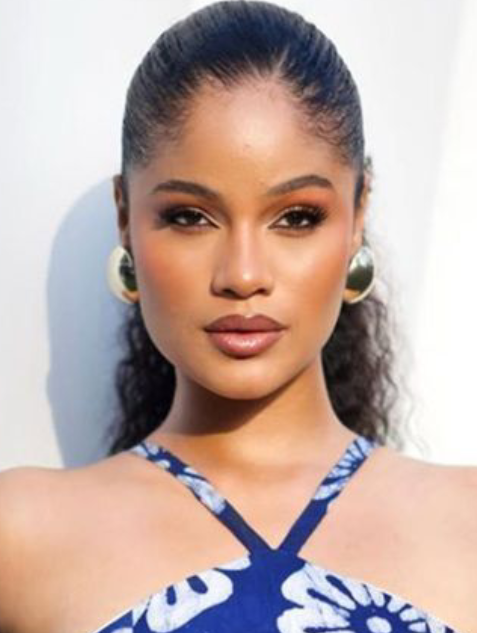
“Nigeria Genuinely Hates Women” — Actress Sunshine Rosman Blows Hot in Emotional Outburst That Sparks Nationwide Debate

Nigerian actress Sunshine Rosman has set social media ablaze after she took to her X (formerly Twitter) account to make a bold and deeply emotional statement that has sent shockwaves across the country. In her words, “Nobody can convince me otherwise, so keep your comments to yourself. The Nigerian society genuinely hates women.” The post, which appeared on her verified account @shine_rosman, immediately drew thousands of reactions within hours, with many Nigerians weighing in on what some are now calling “the uncomfortable truth.”
Rosman, known for her roles in Nollywood dramas and her outspoken personality, didn’t mince words or attempt to sugarcoat her message. The tone of her post reflected years of pent-up frustration, not only from her experiences in the entertainment industry but seemingly from a broader observation of how Nigerian women are treated daily in all spheres of life. Her statement has now become a trending topic, igniting heated conversations across social media platforms, from X to Instagram and even TikTok, as users dissect her words and share personal stories that echo her sentiment.
While Rosman did not go into specific details about what triggered her outburst, fans and critics alike have pointed to the endless list of societal injustices and double standards that Nigerian women face. From gender discrimination and online harassment to victim blaming and unequal opportunities in the workplace, her words appear to resonate with millions of women who have long felt unseen and unheard in a patriarchal system that often normalizes their struggles.
Within minutes of her post, comments began flooding in. Some users praised her for speaking truth to power, calling her “brave,” “bold,” and “a voice for the voiceless.” One user wrote, “She said what needed to be said. Every woman in this country has faced one form of hate or another—whether it’s being judged for how you dress, silenced for having an opinion, or blamed when a man misbehaves.” Another comment read, “Nigeria doesn’t just hate women; it punishes them for existing freely.”
However, not everyone agreed with her stance. Some critics accused the actress of generalizing and exaggerating, arguing that the issue lies not in the society’s hatred for women but in the failure of individuals to challenge cultural mindsets. One reply said, “It’s not that Nigeria hates women, it’s that we are still evolving as a society. There are men and women both suffering under bad systems, not just one gender.” Others accused her of seeking attention or trying to “stay relevant” in an industry where controversy often drives engagement.
But despite the backlash, the larger conversation has become impossible to ignore. Sunshine Rosman’s statement has brought renewed attention to issues many women have been vocal about for years — from gender-based violence and police brutality against women to the constant societal policing of their choices. Feminist groups and gender rights advocates have rallied behind her, using her post as a springboard to highlight ongoing struggles for equality and respect.
For many Nigerian women, the frustration runs deep. In recent years, cases of sexual assault, domestic violence, and public humiliation of women have been widely reported — yet the responses from institutions and the public often reveal the very bias Rosman was referring to. Whether it’s women being shamed for speaking out against abuse or blamed for being victims of rape, the pattern of misogyny is evident. Some netizens pointed out how female victims are often treated with suspicion while their abusers are defended or protected by the same society that claims to value morality.
In entertainment, too, the pressure on women is intense. Actresses like Rosman face scrutiny not just for their talent but for their appearance, lifestyle choices, and even marital status. Many are judged harshly for things their male counterparts easily get away with. The industry’s sexism has been an open secret for years, and Sunshine’s outburst may well be a reflection of the silent battles women fight behind the scenes.
Her post also seems to mirror a growing frustration among young Nigerian women who feel alienated by a system that consistently limits them. From being discouraged from chasing certain careers to being expected to marry early, from workplace discrimination to political exclusion, the barriers are endless. Even online, women are often the targets of cyberbullying, slut-shaming, and coordinated attacks for simply expressing opinions that challenge male dominance.
What makes Rosman’s statement particularly powerful is its raw simplicity. It wasn’t an essay or an academic analysis — it was an emotional cry of exhaustion. In a country where women are constantly told to endure, smile, and stay silent, her bluntness cut through the noise. She didn’t ask for debate or validation; she demanded recognition of a painful reality. Her warning, “so keep your comments to yourself,” was not arrogance but fatigue — the fatigue of trying to explain something that women experience daily yet men often dismiss.
As reactions continue to pour in, several female celebrities and activists have voiced support for Rosman. Some have shared their own experiences, adding credibility to her claim. A few even recounted how they were sidelined, underpaid, or disrespected in professional settings simply because of their gender. On X, the hashtag #NigeriaHatesWomen began trending, with thousands of tweets sharing stories of gender bias — from unfair inheritance laws to sexual harassment in universities and workplaces.
Meanwhile, a small but vocal group of men have joined the discussion, admitting that Nigerian society indeed perpetuates harmful gender roles. Some used the moment to reflect on their behavior, calling for a more empathetic and respectful culture. One user wrote, “Sunshine isn’t lying. We men need to stop pretending we don’t see what’s happening. Women go through hell every day, and our silence makes us complicit.”
The actress herself has remained silent since making the post, refusing to issue any follow-up statement or clarification. But perhaps that silence is intentional — a way to let the message speak for itself. Her choice to step back after dropping such a powerful truth bomb has only fueled curiosity and admiration. Many believe she said what countless women have wanted to say but couldn’t, out of fear of backlash or being labeled “difficult.”
In a country where women still have to fight for basic respect, Sunshine Rosman’s statement feels like more than a random rant — it feels like a reckoning. It’s a reminder that beneath the surface of Nigerian society’s vibrant culture and resilience lies a deep-rooted gender problem that can no longer be ignored. Her words, though simple, carry the weight of centuries of oppression and years of silent pain.
Whether one agrees with her or not, one thing is certain: Sunshine Rosman has reignited an uncomfortable but necessary conversation. Her post may fade from the trending list in a few days, but the truth behind it lingers. For many Nigerian women, her words were not just an opinion — they were a mirror reflecting their daily reality. And for the first time in a long time, someone said it plainly: Nigeria genuinely hates women.


